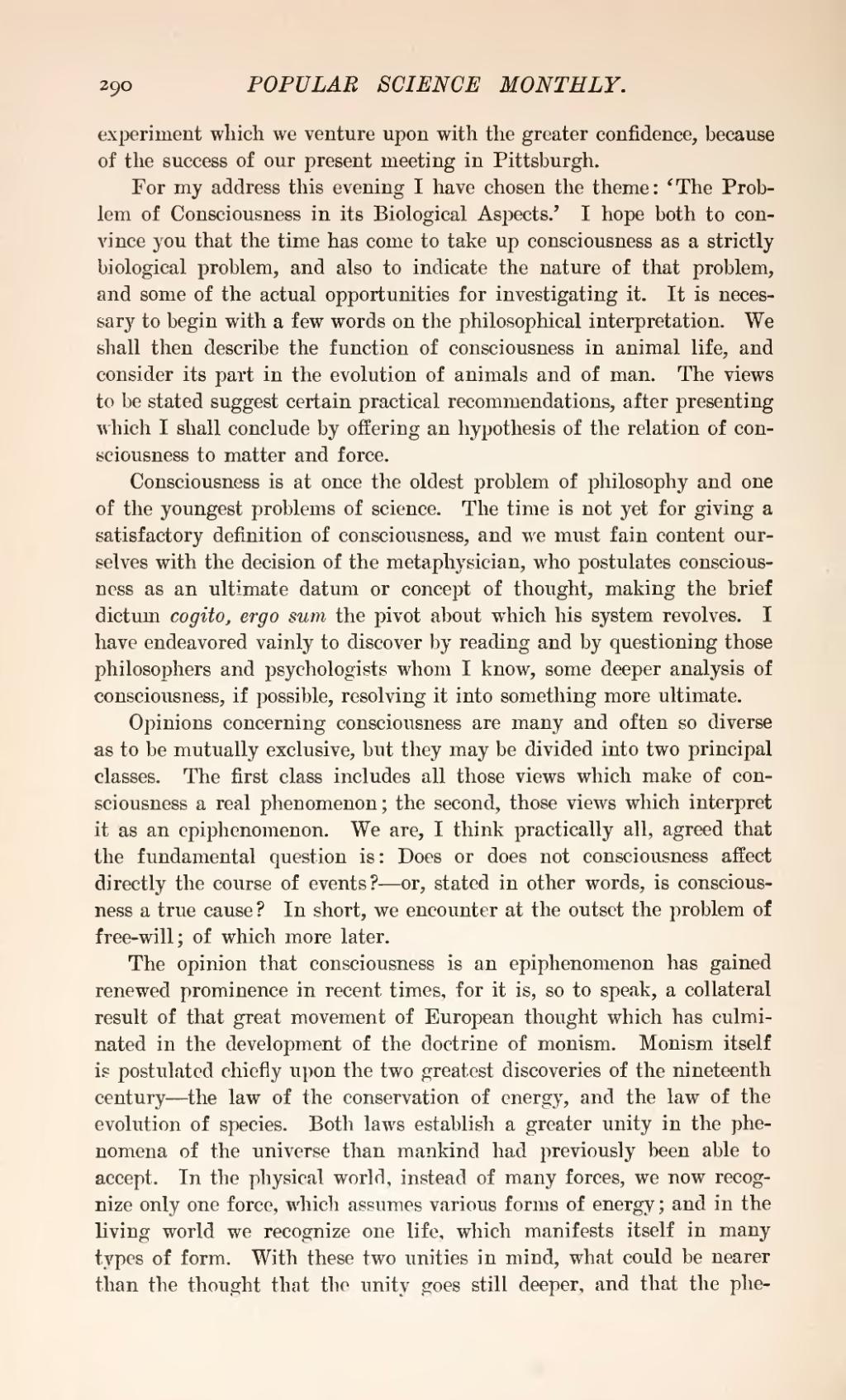experiment which we venture upon with the greater confidence, because of the success of our present meeting in Pittsburgh.
For my address this evening I have chosen the theme: 'The Problem of Consciousness in its Biological Aspects.' I hope both to convince you that the time has come to take up consciousness as a strictly biological problem, and also to indicate the nature of that problem, and some of the actual opportunities for investigating it. It is necessary to begin with a few words on the philosophical interpretation. We shall then describe the function of consciousness in animal life, and consider its part in the evolution of animals and of man. The views to be stated suggest certain practical recommendations, after presenting which I shall conclude by offering an hypothesis of the relation of consciousness to matter and force.
Consciousness is at once the oldest problem of philosophy and one of the youngest problems of science. The time is not yet for giving a satisfactory definition of consciousness, and we must fain content ourselves with the decision of the metaphysician, who postulates consciousness as an ultimate datum or concept of thought, making the brief dictum cogito ergo sum the pivot about which his system revolves. I have endeavored vainly to discover by reading and by questioning those philosophers and psychologists whom I know, some deeper analysis of consciousness, if possible, resolving it into something more ultimate.
Opinions concerning consciousness are many and often so diverse as to be mutually exclusive, but they may be divided into two principal classes. The first class includes all those views which make of consciousness a real phenomenon; the second, those views which interpret it as an epiphenomenon. We are, I think practically all, agreed that the fundamental question is: Does or does not consciousness affect directly the course of events?—or, stated in other words, is consciousness a true cause? In short, we encounter at the outset the problem of free-will; of which more later.
The opinion that consciousness is an epiphenomenon has gained renewed prominence in recent times, for it is, so to speak, a collateral result of that great movement of European thought which has culminated in the development of the doctrine of monism. Monism itself is postulated chiefly upon the two greatest discoveries of the nineteenth century—the law of the conservation of energy, and the law of the evolution of species. Both laws establish a greater unity in the phenomena of the universe than mankind had previously been able to accept. In the physical world, instead of many forces, we now recognize only one force, which assumes various forms of energy; and in the living world we recognize one life, which manifests itself in many types of form. With these two unities in mind, what could be nearer than the thought that the unity goes still deeper, and that the phe-
